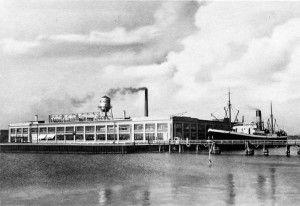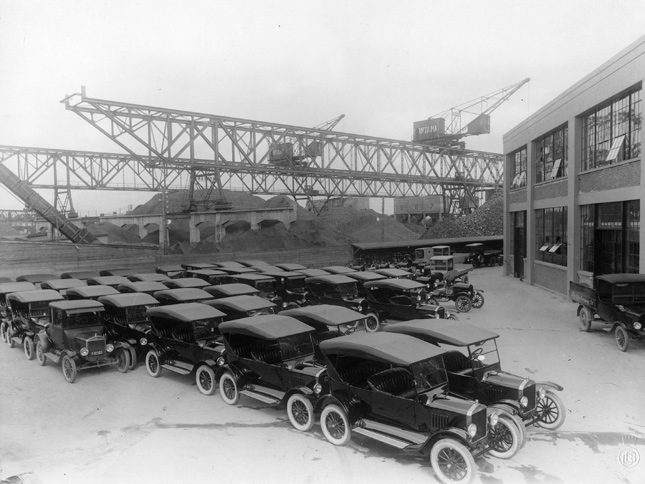In 1919 Ford Motor Company established an assembly plant in Copenhagen, Denmark. It was the second of its kind in Europe, after the one established in Manchester. From Copenhagen most of Northern Europe was supplied with the famous Ford T – the world’s first mass produced car.
It was such a success, that a larger facility was needed, an in 1924 a new, modern factory was build in the Copenhagen South Port area. The factory was designed by Albert Kahn, the architect responsible for some of Fords most iconic industrial complexes in Detroit. Inside, the production technology also closely resembled that used in Detroit.
But when it came to industrial relations, there were profound differences. In Detroit, Ford was fighting hard against any attempts by his worker to organize in trade unions, and not before 1941 an agreement was finally made with the United Auto Workers. However, in Denmark the workers were all unionized from day one, and collective bargaining was a matter of course.



